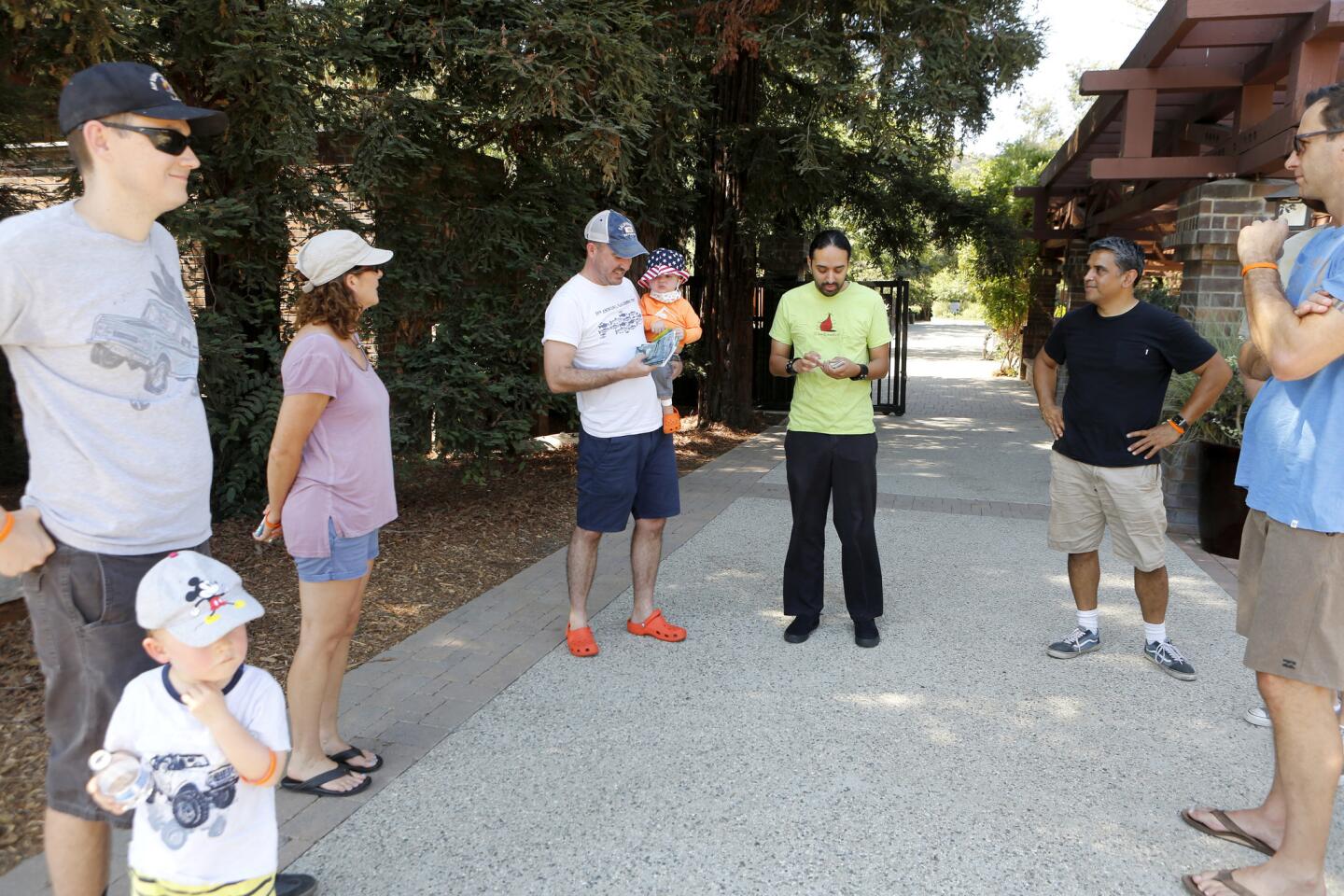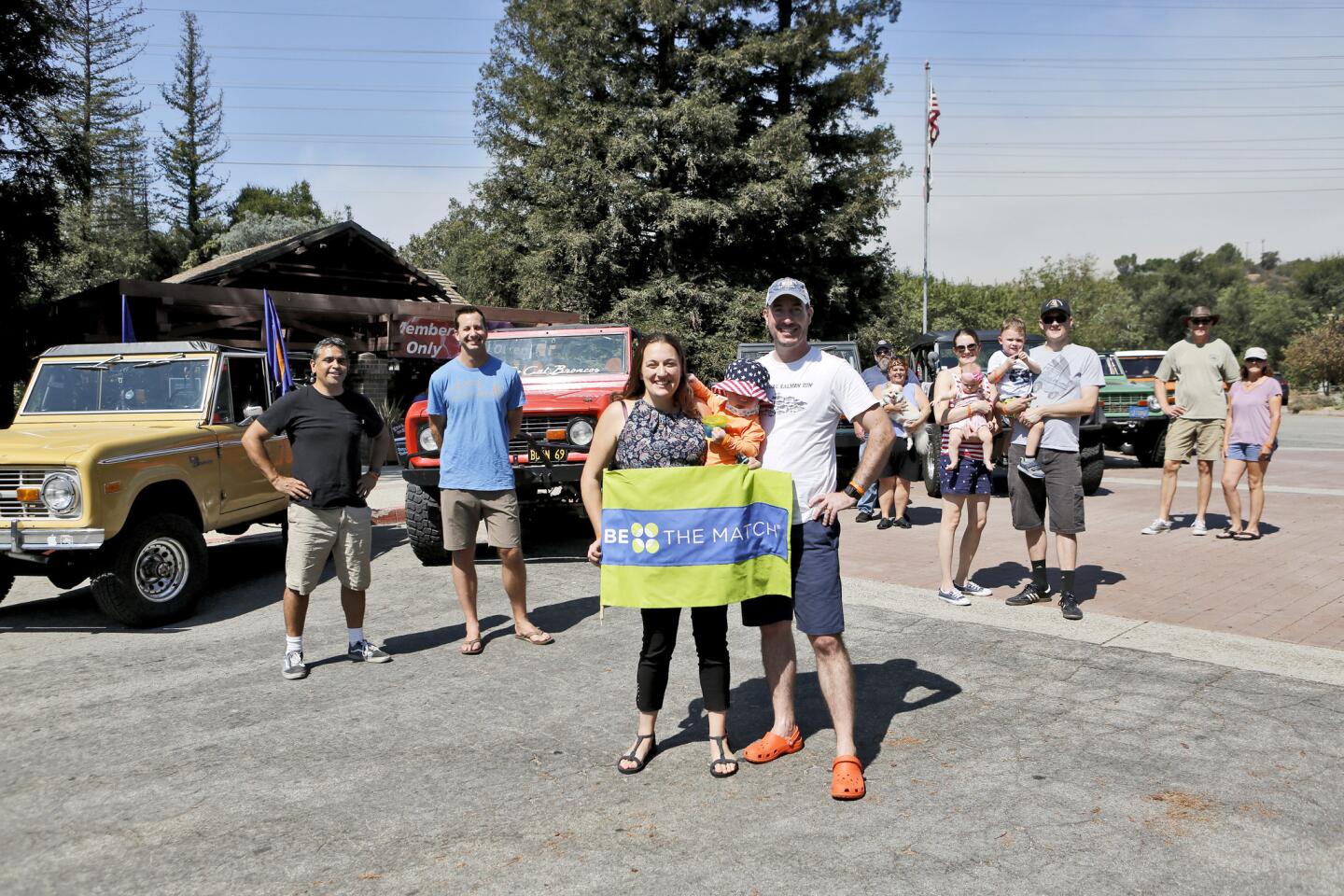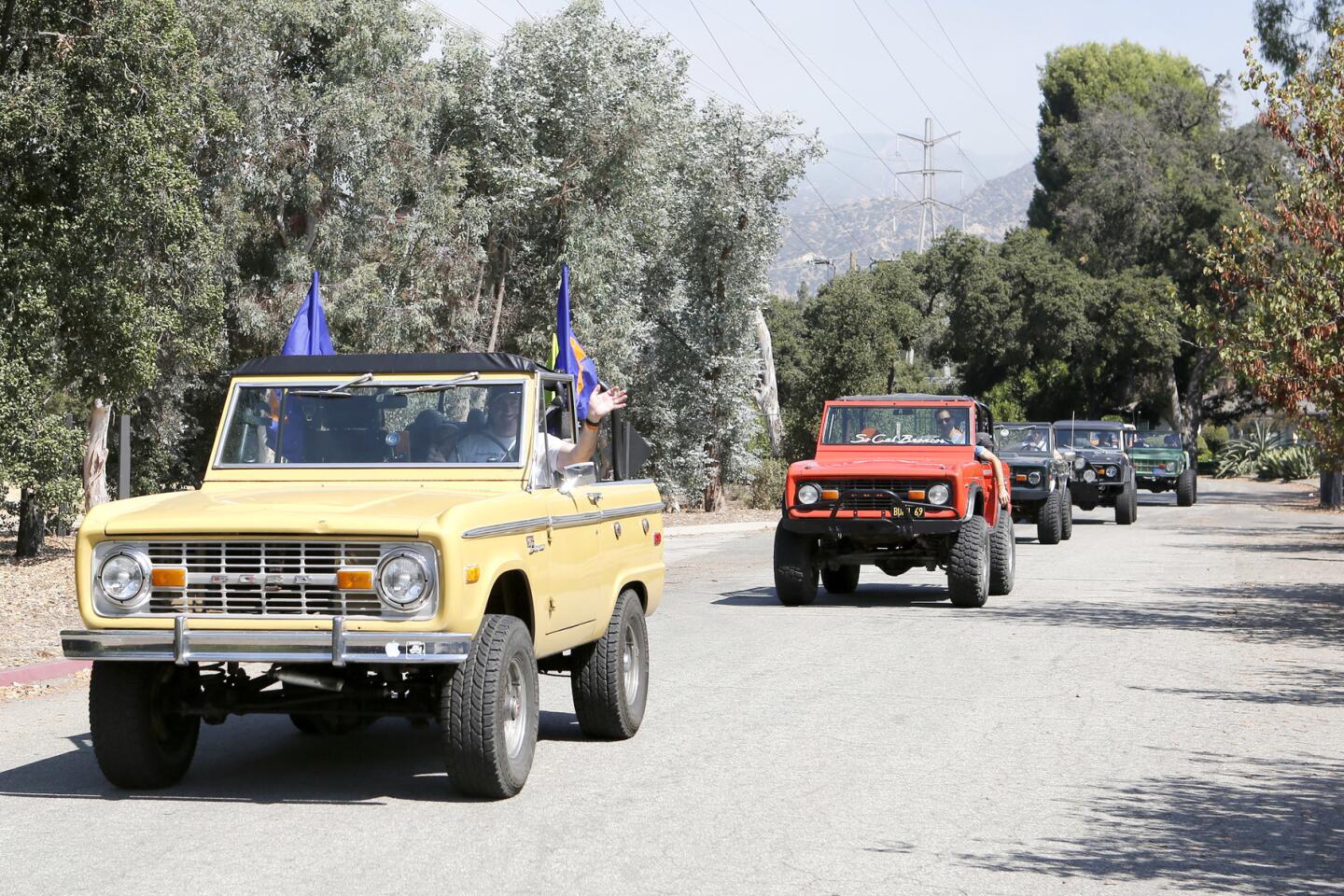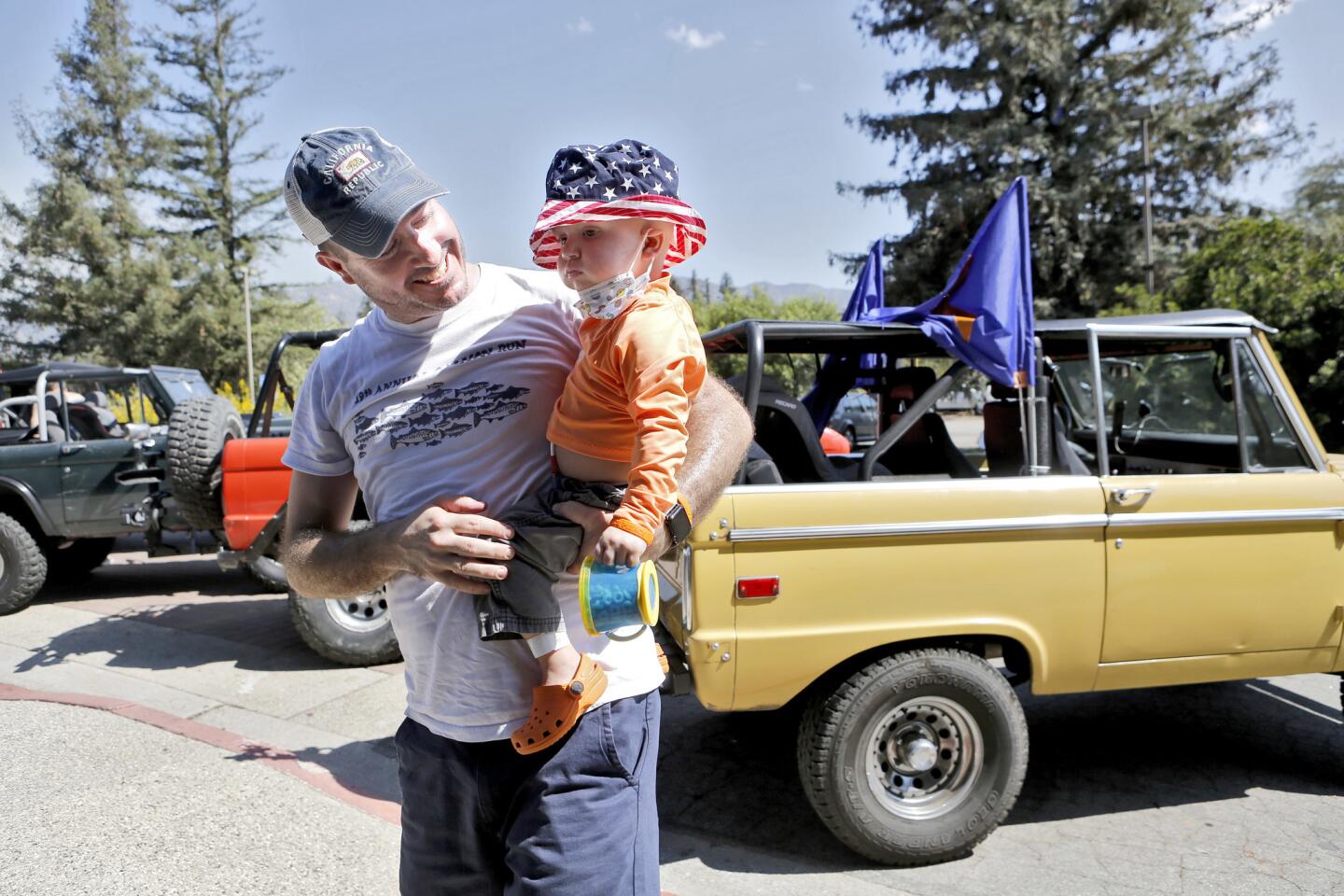Convoy from Children’s Hospital to La Cañada carries precious cargo — a 2-year-old bone marrow recipient
On Saturday morning, a convoy of vintage Ford Broncos carrying some very precious cargo made a stop at La Cañada’s Descanso Gardens.
En route from Children’s Hospital Los Angeles, the motorcade was led by a golden 1971 Bronco with Thousand Oaks resident Tyler Kelly at the helm. Tucked safely into a car seat in the back was 2-year-old Pierce Kelly, known by family and friends as “Fierce Pierce,” still recovering from a July 21 bone marrow transplant.
At the La Cañada home of relatives Donna and Dave McLaughlin, Pierce will recuperate under the watchful eye of mom Aubrey. For 100 days following the procedure, he must reside within a 30-minute drive of Children’s Hospital for monitoring.
Saturday’s 13-mile drive was just one portion of a tumultuous journey the Kellys have been on since April 7, when Pierce was diagnosed with acute myeloid leukemia. His chance of surviving the devastating illness with treatment alone was only 50%, according to mom Aubrey. But there was one hope — if the Kellys could find a bone marrow donor, Pierce’s odds would improve by at least another 15%.
“We were at the mercy of whoever had registered,” Aubrey Kelly recalled.
Among the nearly 13.5 million Americans already listed as donors on the Be the Match Marrow Registry, there were no donors close enough to be a match with Pierce.
Raquel Edpao, a community outreach specialist for Be the Match, said on any given day there are 14,000 people like the Kellys, searching registries for a bone marrow match. It’s her job to help educate people how simple it is to join the registry and to donate if called.
Potential donors register online at bethematch.org, then receive and turn in a cheek swab. After that, they’re contacted if they are a potential match for someone. Edpao estimates about one out of every 430 registrants will be asked to donate.
“There are so many misconceptions about donating,” she said, invoking myths about spinal drilling, painful extractions and missed days at work. “It’s usually as simple as donating blood.”
In about 20% of cases donors are asked to undergo a marrow extraction, a 45-minute outpatient procedure involving a general anesthetic.
Luckily for the Kellys, a search of donors worldwide returned a single donor in France whose human leukocyte antigen (HLA) protein was a 10-out-of-10 match with Pierce’s. While the marrow was shipped, the 2-year-old underwent chemotherapy to destroy most of his damaged stem cells in preparation for the donation.
“It’s a fine balance of leaving him with enough cells to receive the new ones, but not so many that the new cells don’t have enough room to grow,” Aubrey Kelly said, explaining how her son’s blood type switched from A positive, his own type, to the donor’s O negative.
Pierce’s recovery from the transplant requires a sterile environment that means he cannot stay with siblings Sierra, 4, and 6-month-old Harper. Donna McLaughlin, a cousin of Aubrey Kelly’s dad, said she and husband Dave were happy to offer their home in La Cañada’s Paradise Valley neighborhood for his recovery.
“I’ve worked for the past week cleaning my house — it’s never been so clean,” she said of her preparation for Pierce and Aubrey’s 57-day visit. “I’m being paranoid, I know, but he is going to be OK on my watch.”
Knowing he would have to return to Thousand Oaks to take care of Pierce’s sisters, Tyler Kelly wanted to ensure his son’s trip from the hospital would be a special one. The Bronco — the same vehicle his mother drove to the hospital in 1981 so he could be delivered, and the same one he and Aubrey have used to get to the delivery room in time for the birth of their own three children — seemed a fitting conveyance.
“We wanted to continue the tradition,” he said.
Hoping to assemble a retinue for the drive, Tyler Kelly reached out to enthusiast club SoCal Broncos and classicbroncos.com. Several people responded, including Agoura Hills Bronco owner Dan Bennett, for whom the cause was personal. About 10 years ago he saved a life by donating his own bone marrow.
“To be able to go in and help play an intrinsic role in saving someone’s life is a really special thing,” Bennett said. “I think everybody should do it.”
Twitter: @SaraCardine





